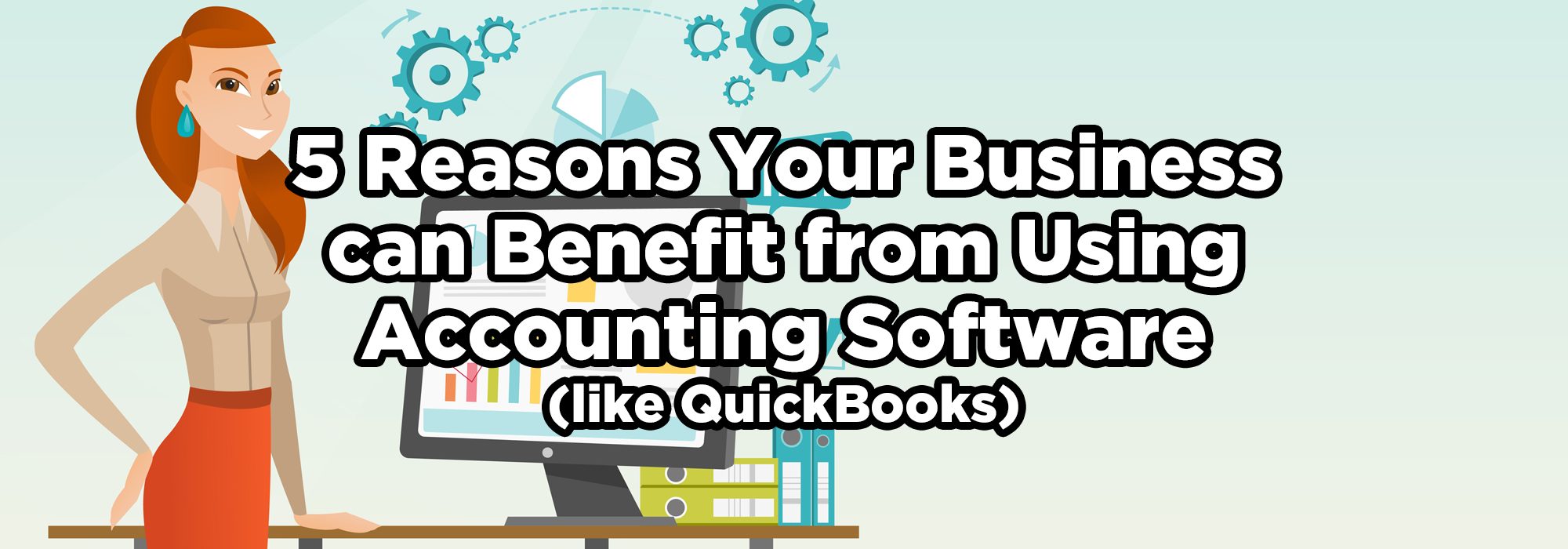5 Reasons Your Business Can Benefit by Using Accounting Software (like Quickbooks)

Managing finances is an essential aspect of running a small business. Accurate financial records help businesses keep track of their expenses, revenues, and profits, which is critical for making informed decisions. One way to streamline the accounting process is to use accounting software such as QuickBooks. QuickBooks is an intuitive and user-friendly accounting software that can help small business owners track expenses, create invoices, and generate financial reports. In this article, we will discuss the importance of using accounting software to manage your accounting.
The HCBA uses QuickBooks Online, but there are several software packages available. Some of those include: Zoho Books, FreshBooks, Zero, Quicken, NetSuite, and Sage Business Cloud Accounting. These were actually featured in a recent Forbes Article, which gives a great review and synopsis of each platform.
1. Time Savings
Manually managing financial records can be a time-consuming task. Accounting software can save you time by automating many of the accounting processes. For example, QuickBooks can automatically download bank and credit card transactions and categorize them into the appropriate expense categories. This will save you time and effort of manually inputting transactions and categorizing them, allowing them to focus on running their business.
2. Accurate Record Keeping
Manual record-keeping can lead to errors and discrepancies, which can be costly for small businesses. Accounting software can help minimize errors by automatically recording transactions and reconciling accounts. The programs can also generate financial reports that provide valuable insights into the financial health of the business. Accurate financial records are essential for making informed decisions about budgeting, cash flow, and investments.
3. Tax Compliance
Small businesses and non-profit organizations are required to file taxes every year, which can be a daunting task. Accounting software can help small business owners stay compliant with tax regulations by tracking expenses, calculating taxes, and generating tax reports. QuickBooks and other software can also help owners keep track of deductions, which can help reduce their tax liability.
4. Streamlined Invoicing
Invoicing can be a time-consuming task, especially for small businesses that have to manage multiple clients. Accounting software can help streamline the invoicing process by creating customized invoices and sending them to clients electronically. QuickBooks can also track invoice payments and send payment reminders, reducing the time and effort required to manage accounts receivable.
5. Financial Planning
Platforms like Quickbooks can provide small business owners with valuable insights into their finances, which can help them plan for the future. QuickBooks can generate financial reports that show cash flow, profit and loss, and balance sheets. These reports can help business owners identify areas where they can reduce expenses, increase revenue, and make investments.
In conclusion, managing financials is essential. Accounting software like QuickBooks can help you streamline your accounting process, save time, and make informed decisions. These packages will help you stay compliant with tax regulations, streamline invoicing, and generate the financial reports you need to see into the financial health of your organization. Most importantly, accounting software allows you to focus on your business instead of manually managing your finances.
